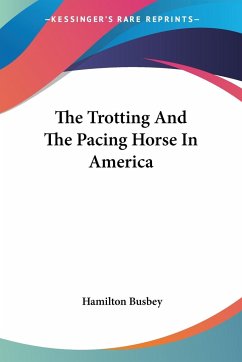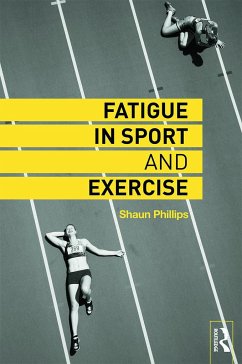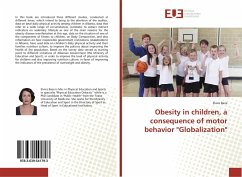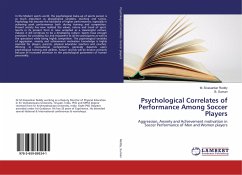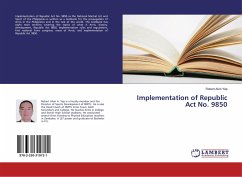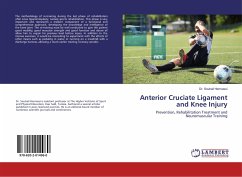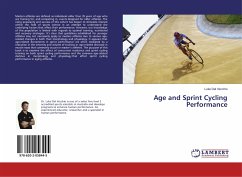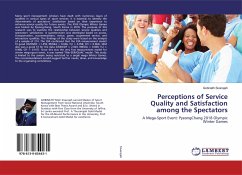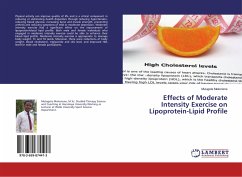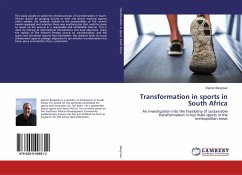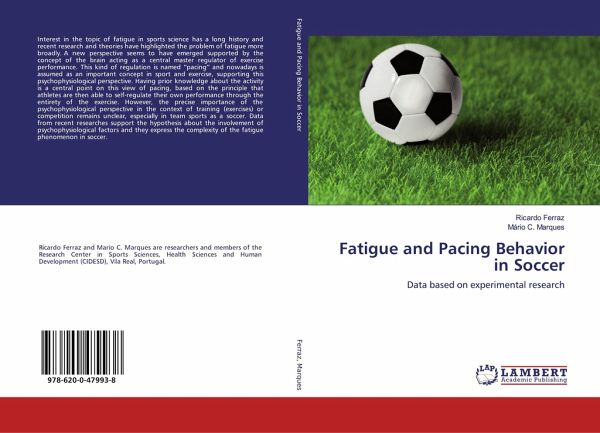
Fatigue and Pacing Behavior in Soccer
Data based on experimental research
Versandkostenfrei!
Versandfertig in 1-2 Wochen
41,99 €
inkl. MwSt.

PAYBACK Punkte
21 °P sammeln!
Interest in the topic of fatigue in sports science has a long history and recent research and theories have highlighted the problem of fatigue more broadly. A new perspective seems to have emerged supported by the concept of the brain acting as a central master regulator of exercise performance. This kind of regulation is named "pacing" and nowadays is assumed as an important concept in sport and exercise, supporting this psychophysiological perspective. Having prior knowledge about the activity is a central point on this view of pacing, based on the principle that athletes are then able to se...
Interest in the topic of fatigue in sports science has a long history and recent research and theories have highlighted the problem of fatigue more broadly. A new perspective seems to have emerged supported by the concept of the brain acting as a central master regulator of exercise performance. This kind of regulation is named "pacing" and nowadays is assumed as an important concept in sport and exercise, supporting this psychophysiological perspective. Having prior knowledge about the activity is a central point on this view of pacing, based on the principle that athletes are then able to self-regulate their own performance through the entirety of the exercise. However, the precise importance of the psychophysiological perspective in the context of training (exercises) or competition remains unclear, especially in team sports as a soccer. Data from recent researches support the hypothesis about the involvement of psychophysiological factors and they express the complexity of the fatigue phenomenon in soccer.



